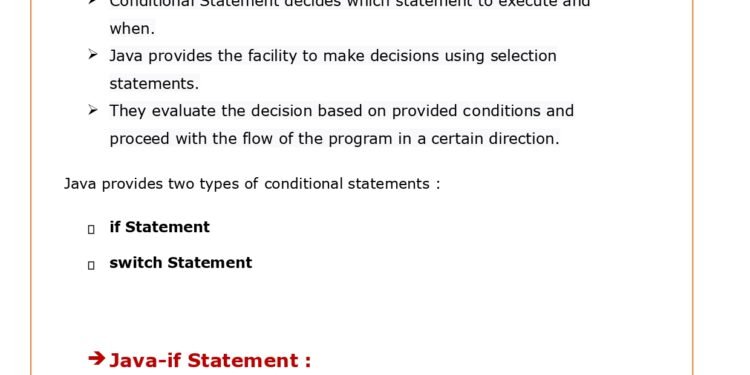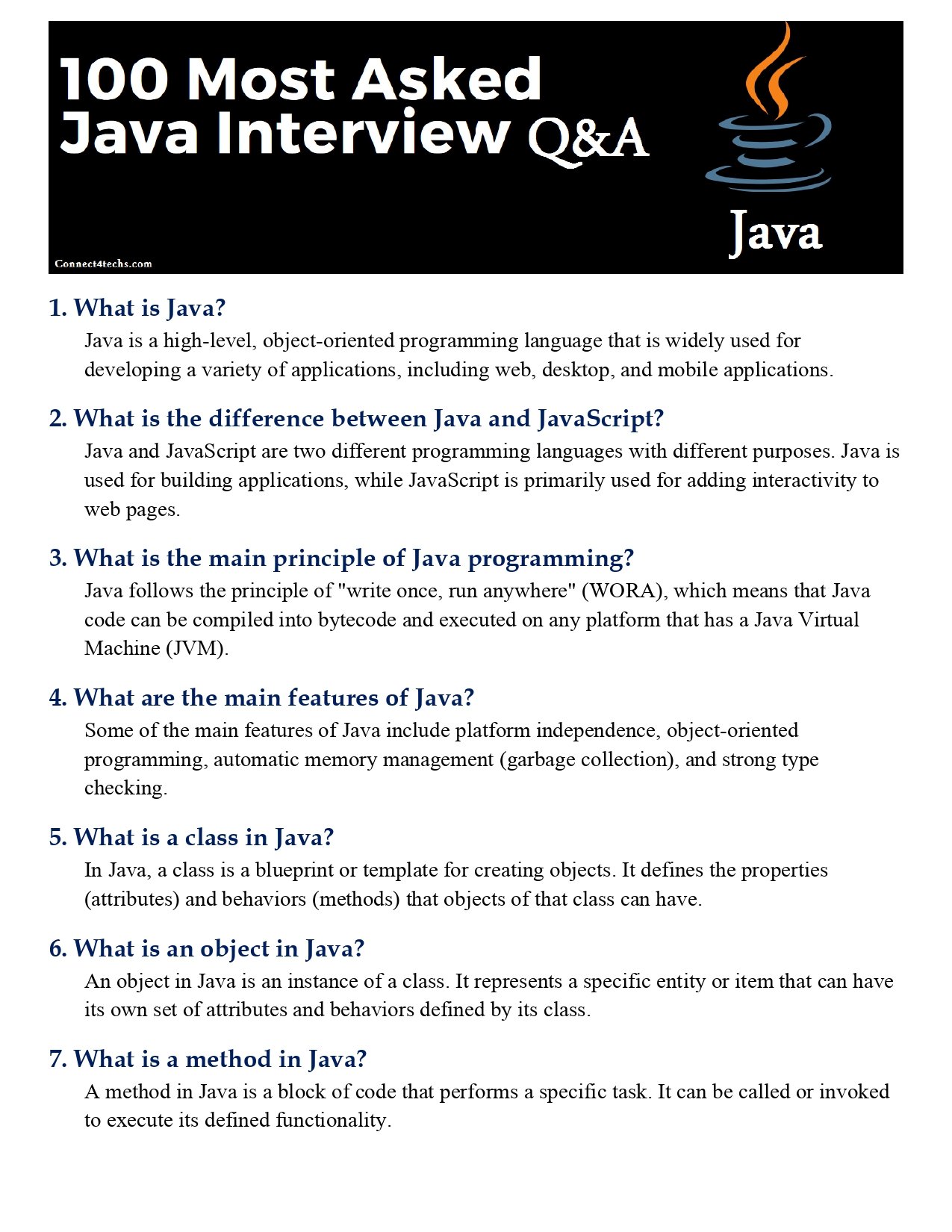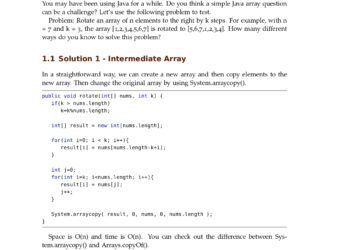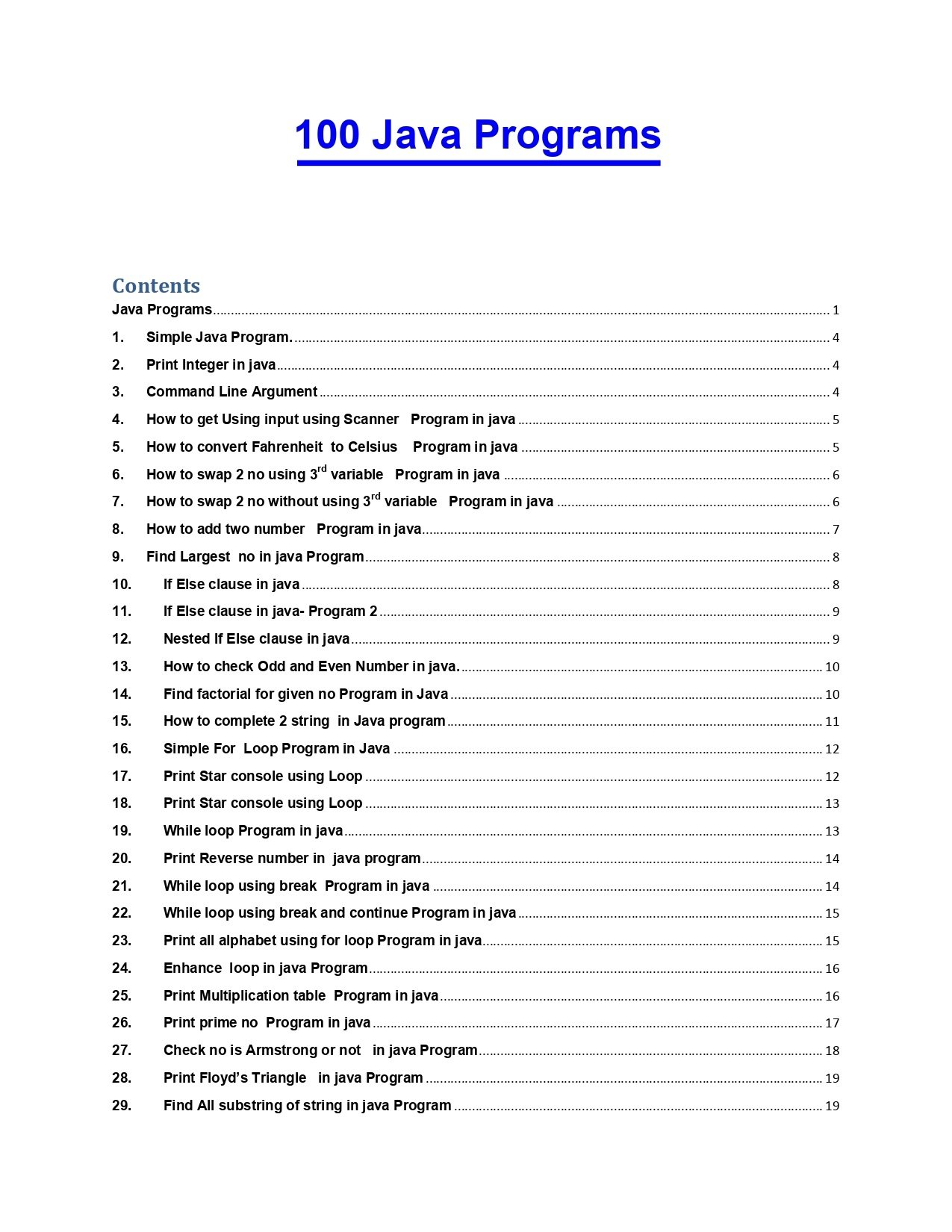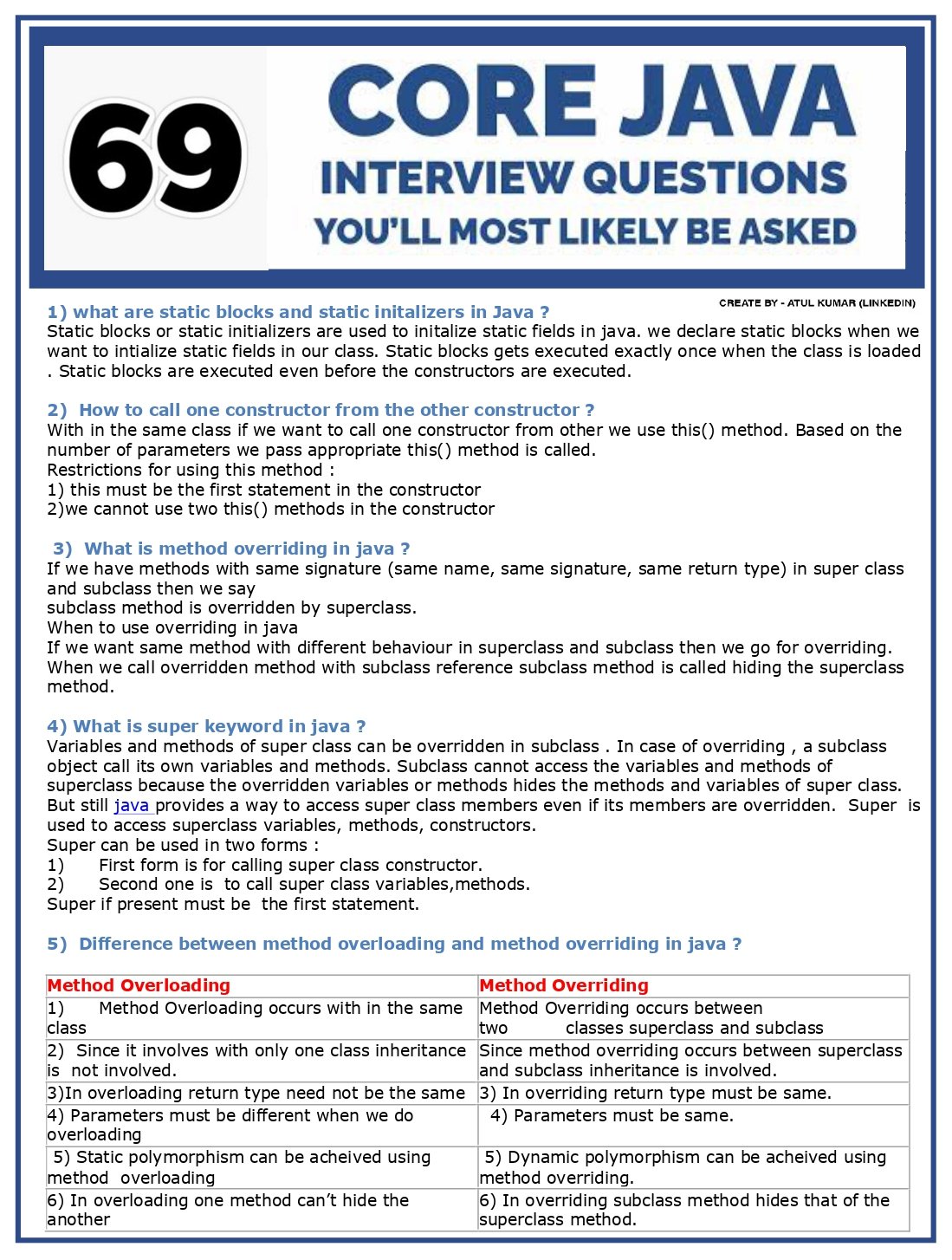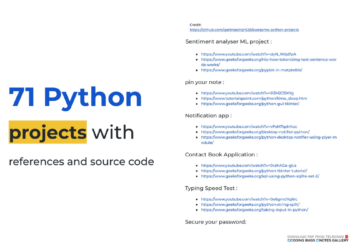Conditional statements are one of the most common and useful concepts in any programming language. Conditional statements are statements that execute different blocks of code based on certain conditions, such as the value of a variable, the result of a comparison, the state of a boolean expression, etc. Conditional statements are used to control the flow of execution, make decisions, perform different actions, handle different scenarios, etc.
In this blog post, I will introduce you to a PDF document that contains a clear and concise tutorial on conditional statements in Java, explaining their definition, types, syntax, and examples.
Overview about the Notes
The PDF document that I am going to share with you is called “Java Tutorial – Conditional Statements”.
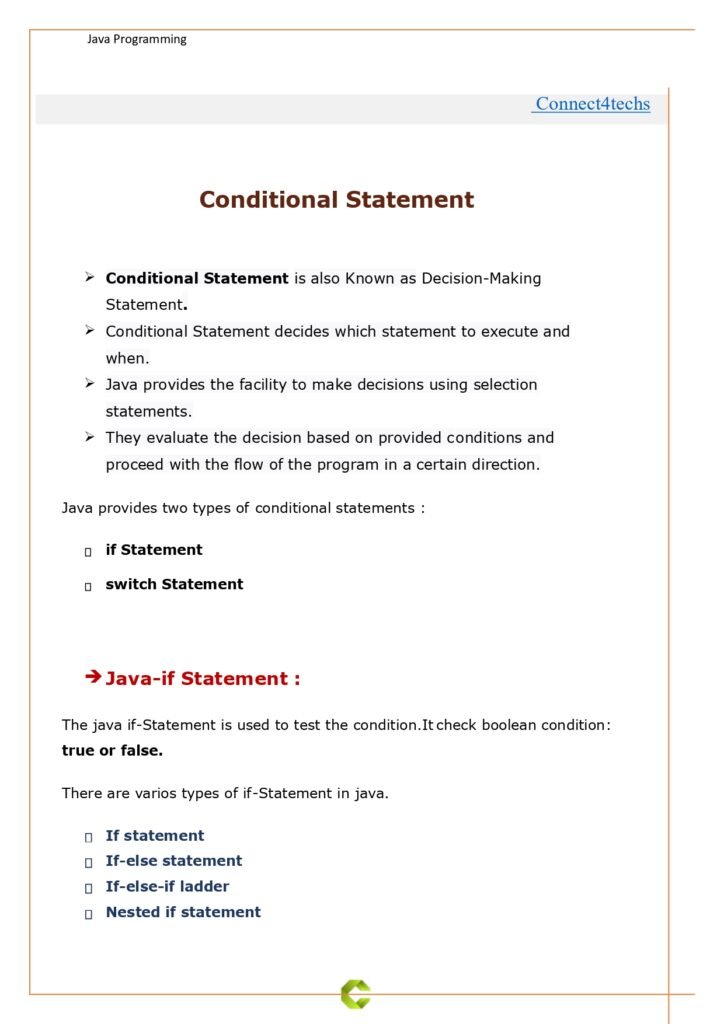
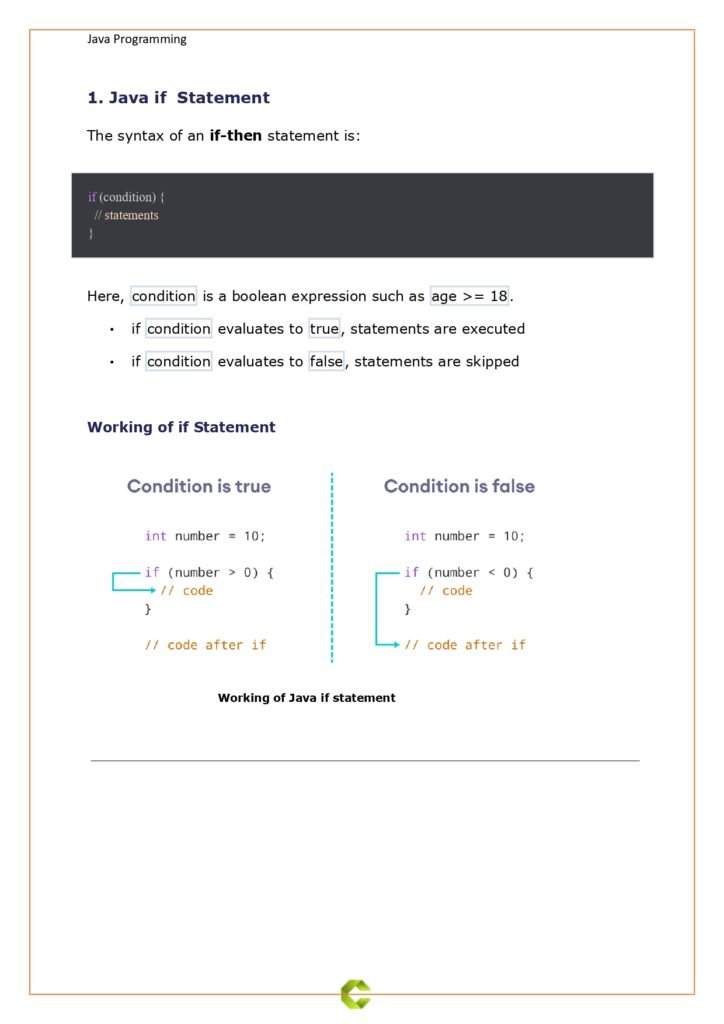
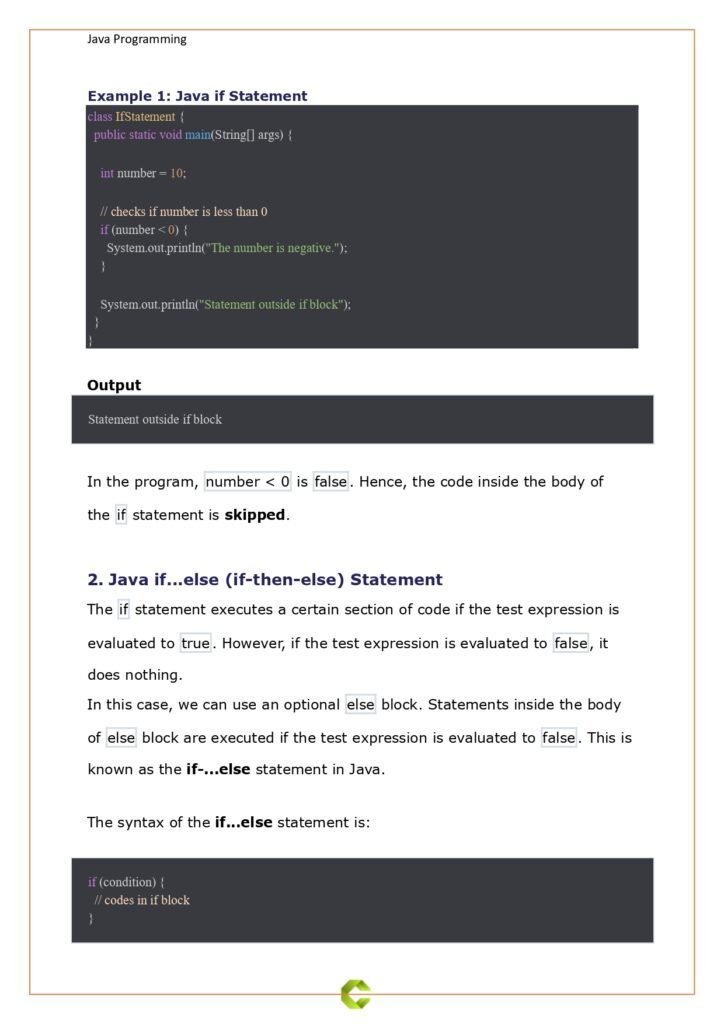
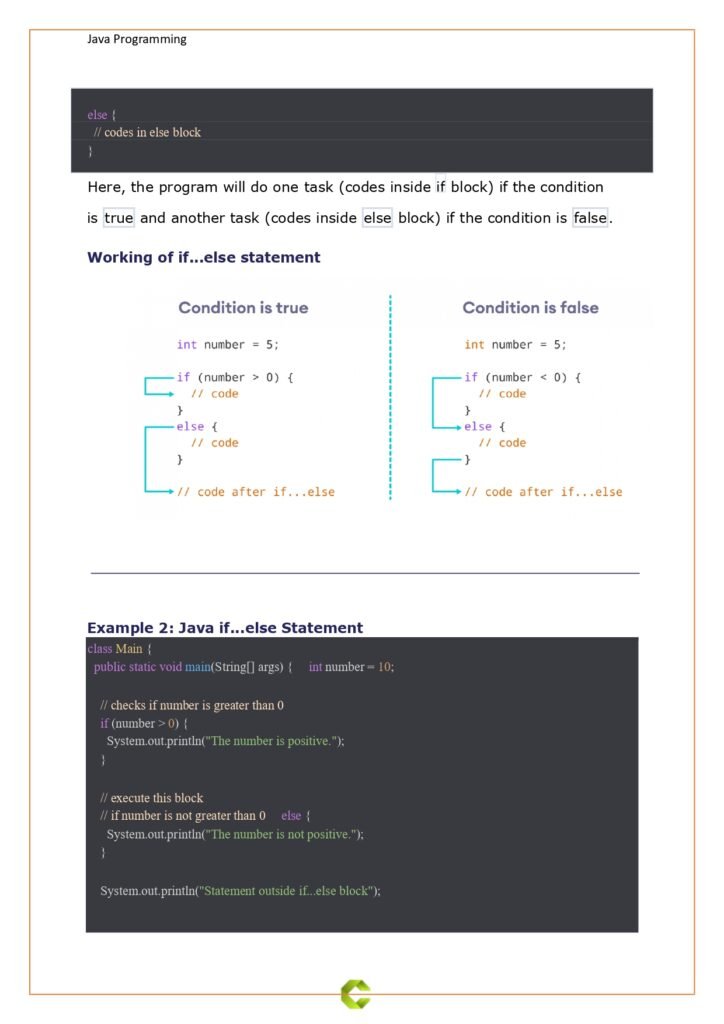
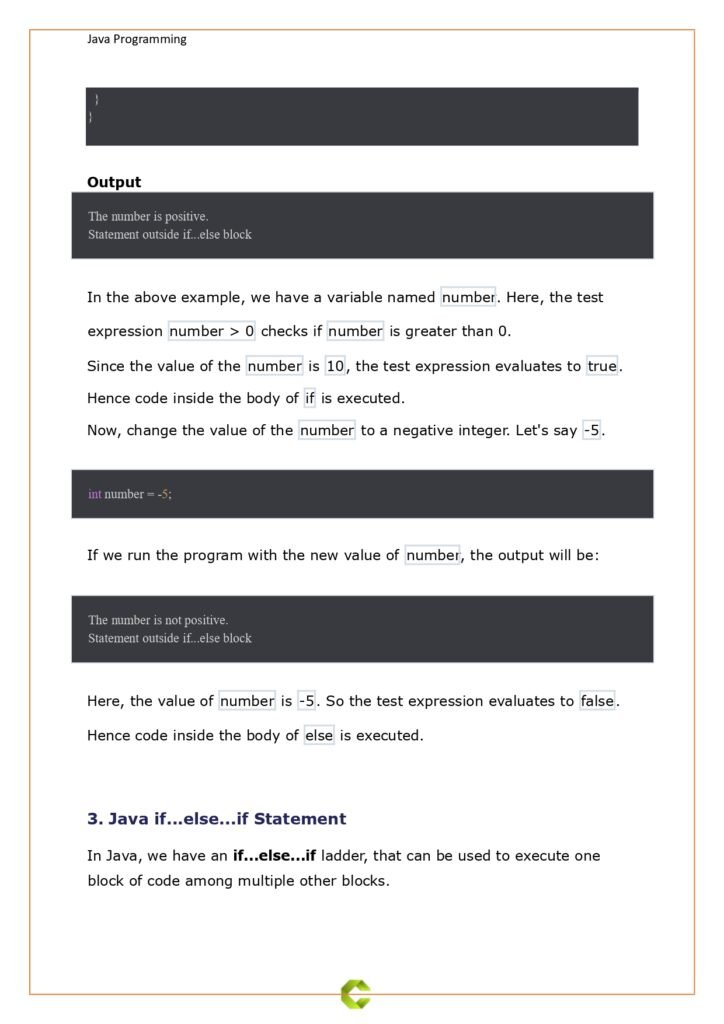
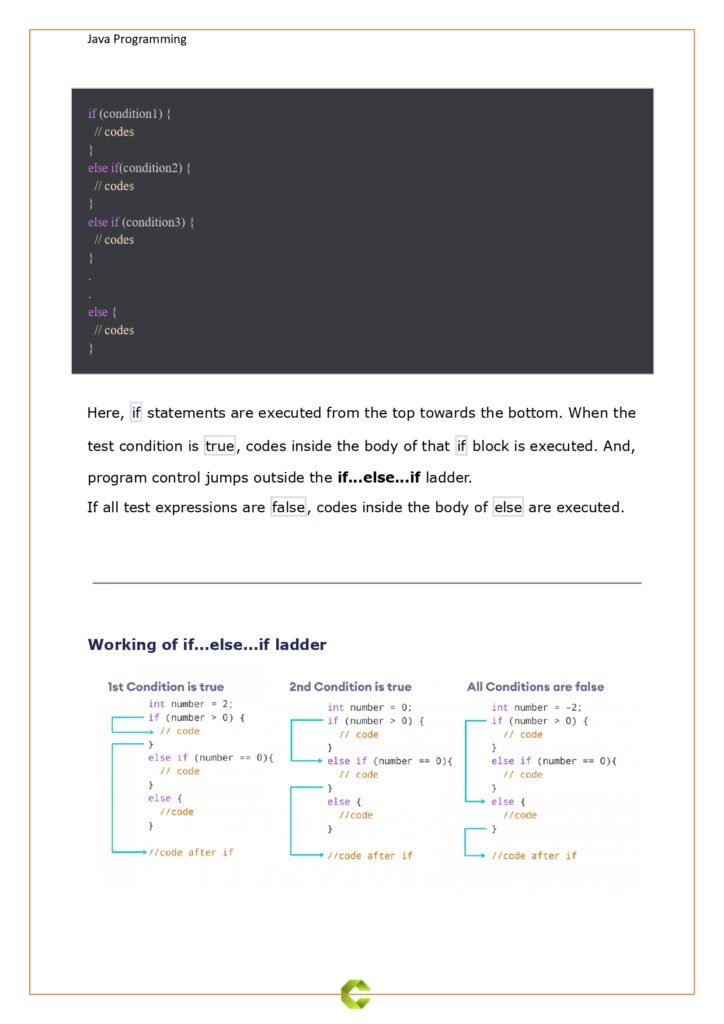
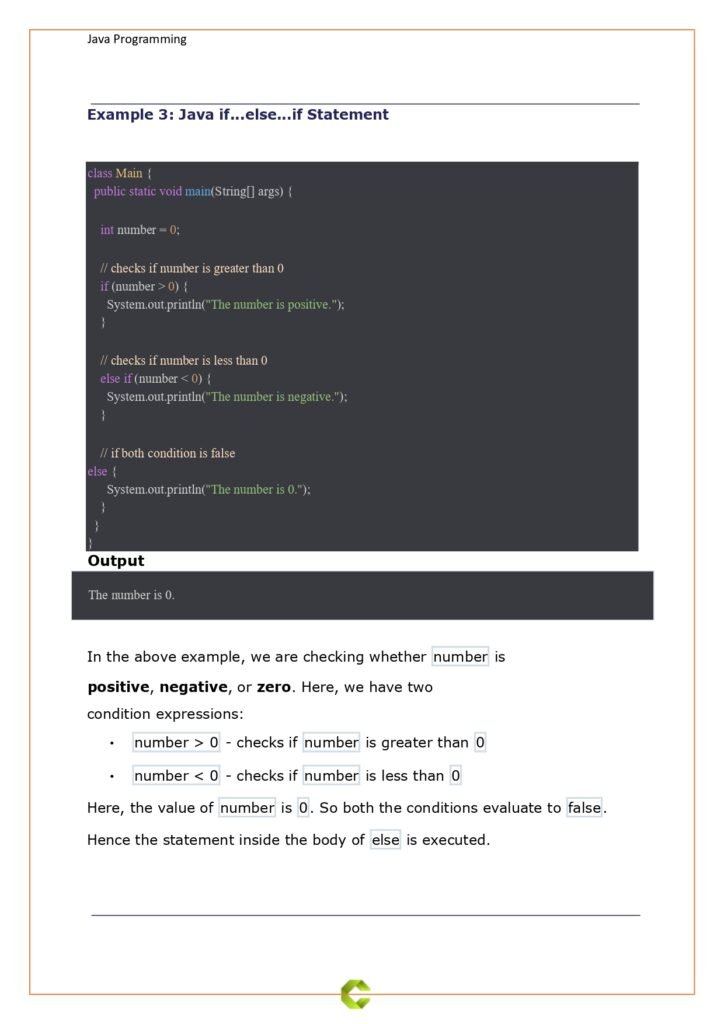
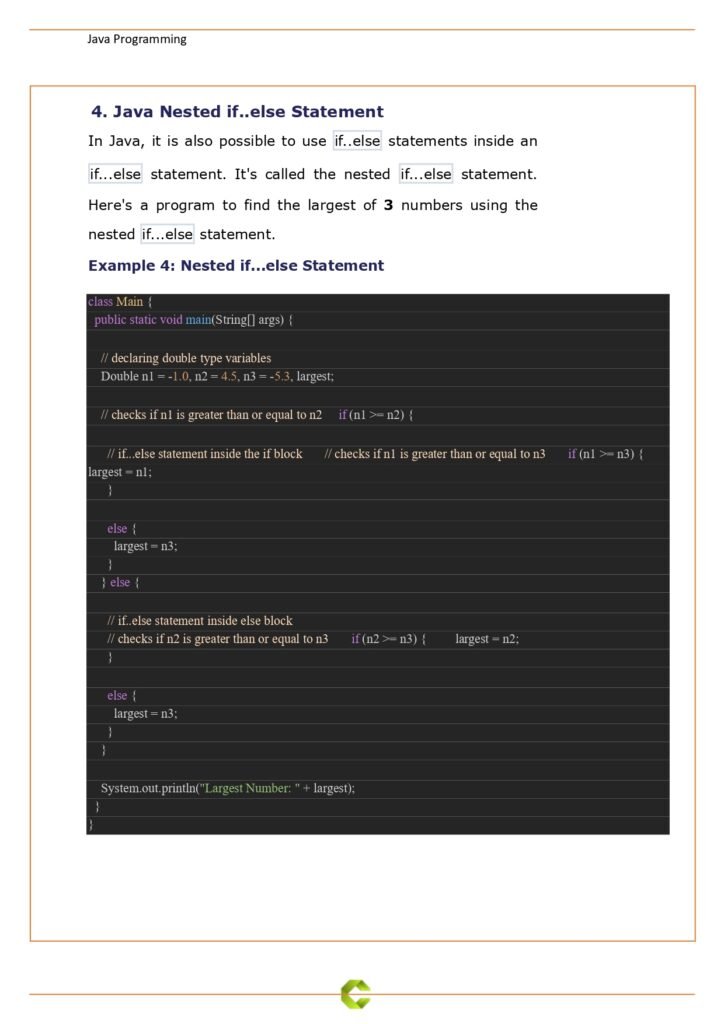
The document is divided into four sections, each covering a different type of conditional statement in Java. The sections are as follows:
- Section 1: What are Conditional Statements in Java?
- Section 2: What is the if Statement in Java?
- Section 3: What is the if-else Statement in Java?
- Section 4: What is the switch Statement in Java?
Each section contains a clear and concise explanation of the concepts, diagrams, examples of code, and notes. The document also contains a summary, a list of references, and a quiz.
The Content of the Notes
The document covers the essential topics that you need to know to understand and use conditional statements in Java. It assumes that you have some basic knowledge of Java, such as how to write and compile a simple Java program. However, it does not require any advanced knowledge of Java or its internals.
The document starts with an explanation of what are conditional statements in Java, where it defines conditional statements as statements that execute different blocks of code based on certain conditions, such as the value of a variable, the result of a comparison, the state of a boolean expression, etc. It also explains the difference between conditional statements and loops, and the difference between conditional statements and methods.
The document then moves on to the explanation of what is the if statement in Java, where it shows the simplest type of conditional statement in Java, which is the if statement. It also shows the syntax and rules for writing an if statement, and how to use it to execute a block of code only if a condition is true.
The document also covers the explanation of what is the if-else statement in Java, where it shows the second type of conditional statement in Java, which is the if-else statement. It also shows the syntax and rules for writing an if-else statement, and how to use it to execute one block of code if a condition is true, and another block of code if the condition is false.
The document then explains what is the switch statement in Java, where it shows the third type of conditional statement in Java, which is the switch statement. It also shows the syntax and rules for writing a switch statement, and how to use it to execute different blocks of code based on the value of a variable or an expression. It also explains the difference between the switch statement and the if-else statement, and the difference between the switch statement and the switch expression.
Why This Notes
This PDF document is a great resource for anyone who wants to learn or review conditional statements in Java. It is written by an experienced and qualified software engineer and instructor who has a passion and expertise for teaching Java and other programming languages. It is based on the latest version of Java and follows the best practices and standards of the language. It is clear and concise, covering all the essential topics in a simple and easy way. It is also interactive and engaging, providing diagrams, examples, and notes to help you understand and use conditional statements in Java. It is also free and accessible, available for download from the link below.
Conclusion
Conditional statements are one of the most common and useful concepts in any programming language. They are statements that execute different blocks of code based on certain conditions, such as the value of a variable, the result of a comparison, the state of a boolean expression, etc. They are used to control the flow of execution, make decisions, perform different actions, handle different scenarios, etc. If you want to learn or review conditional statements in Java, you should definitely check out this PDF document that contains a clear and concise tutorial on conditional statements in Java. It will help you understand the definition, types, syntax, and examples of conditional statements in Java. It will also help you write and run your own Java programs and explore the possibilities of the language.
Download from Link
You can download the PDF document “Java Tutorial – Conditional Statements” from this link: [Java Tutorial – Conditional Statements (PDF)].
I hope you find it useful and enjoyable. Happy learning! 😊.
